Books on the theology of tech
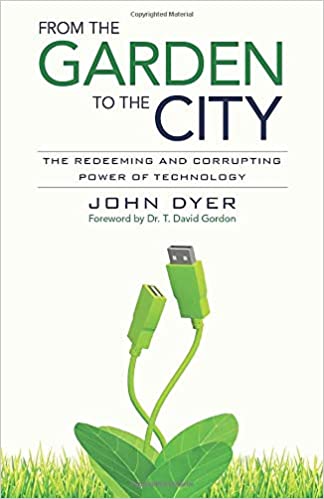
From the Garden to the City: The Redeeming and Corrupting Power of Technology
by John Dyer
Where does technology belong in the biblical story of redemption?
Believers and unbelievers alike are saturated with technology, yet most give it little if any thought. Consumers buy and upgrade as fast as they can, largely unaware of technology’s subtle yet powerful influence. In a world where technology changes almost daily, many are left to wonder: Should Christians embrace all that is happening? Are there some technologies that we need to avoid? Does the Bible give us any guidance on how to use digital tools and social media?
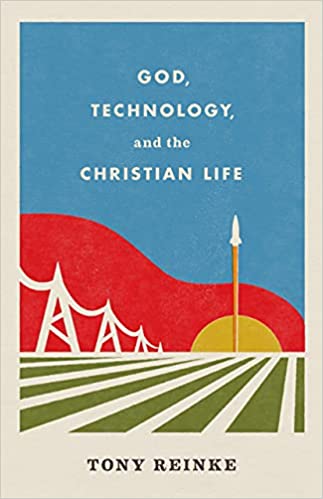
God, Technology, and the Christian Life
by Tony Reinke
What Does God Think about Technology?
From smartphones to self-driving cars to space travel, new technologies can inspire us. But the breakneck pace of change can also frighten us. So how do Christians walk by faith through the innovations of Silicon Valley? And how does God relate to our most powerful innovators?
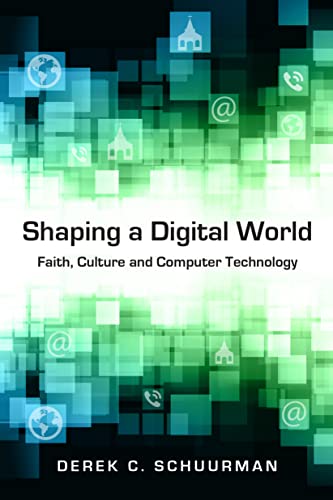
Shaping a Digital World
by Derek Shuurman
In this thoughtful and timely book, Derek Schuurman provides a brief theology of technology, rooted in the Reformed tradition and oriented around the grand themes of creation, fall, redemption and new creation. He combines a concise, accessible style with penetrating cultural and theological analysis. Building on the work of Jacques Ellul, Marshall McLuhan and Neil Postman, and drawing from a wide range of Reformed thinkers, Schuurman situates computer technology within the big picture of the biblical story.
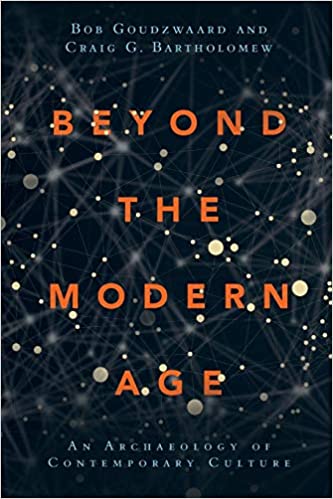
Beyond the Modern Age: An Archaeology of Contemporary Culture
by Bob Goudzwaard and Craig Bartholomew
Bob Goudzwaard and Craig G. Bartholomew have spent decades listening to their students and reflecting on modern thought and society. In Beyond the Modern Age they explore the complexities and challenges of our time. Modernity is not one thing but many, encompassing multiple worldviews that contain both the source of our problems and the potential resources for transcending our present situation.
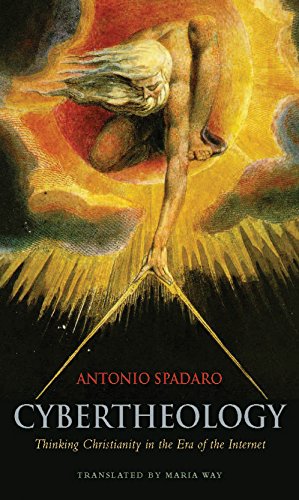
Cybertheology: Thinking Christianity in the Era of the Internet
by Antonio Spadaro
Spadaro delves deeply into various dimensions of the impact of the Net on the Church and its organization, on our understanding of revelation, grace, liturgy, the sacraments, and other classical theological themes. He rightly points out that the digital environment is not merely an external instrument that facilitates human communication or a purely virtual world, but part of the daily experience of many people, a new “anthropological space” that is reshaping the way we think, know, and express ourselves.
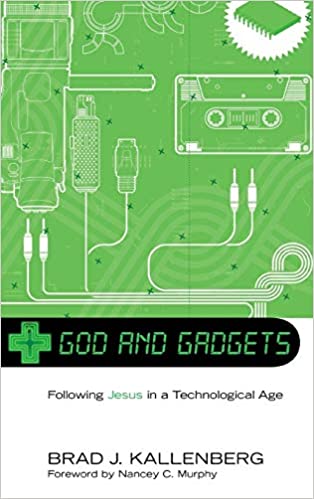
God and Gadgets: Following Jesus in a Technological Age
by Brad J. Kallenberg and Nancey C. Murphy
Technologies are deeply embedded in the modern West. What would our lives be like without asphalt, glass, gasoline, electricity, window screens, or indoor plumbing? We naturally praise technology when it is useful and bemoan it when it is not. But there is much more to technology than the usefulness of this or that artifact.
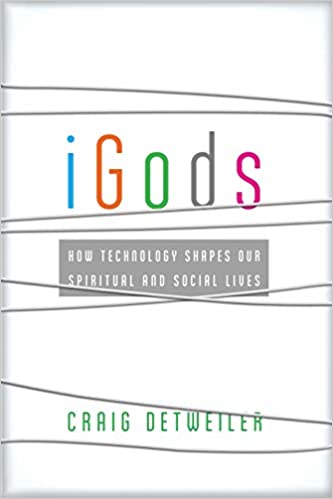
iGods
by Craig Detweiler
Craig Detweiler, a nationally known writer and speaker on media issues, provides needed Christian perspective on navigating today’s social media culture. He interacts with major symbols, or “iGods,” of our distracted age–Google, Facebook, Amazon, Apple, Pixar, YouTube, and Twitter–to investigate the impact of the technologies and cultural phenomena that drive us. Detweiler offers a historic look at where we’ve been and a prophetic look at where we’re headed, helping us sort out the immediate from the eternal, the digital from the divine.
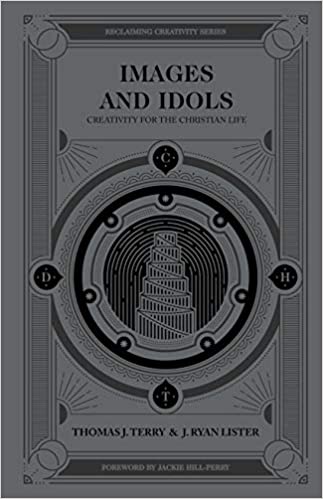
Images and Idols
by Thomas Terry and Ryan Lister
Christians ought to be leading the way in creativity, but we rarely do.
God is the Creator of all things, and He created us in His image. Creativity is woven into the very fabric of our humanity. Therefore, Christians should value and champion creativity as a vital part of our image-bearing role. Instead Christians often don’t know what to do with creatives and creatives don’t know what to do with Christianity. On one side you have Christians who neglect or discount art, imagination, and beauty altogether. On the other, you have artists who make idols out of each of these good things.
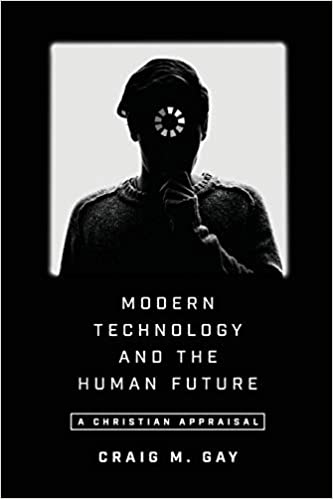
Modern Technology and the Human Future
by Craig Gay
Technology is not neutral. From the plow to the printing press, technology has always shaped human life and informed our understanding of what it means to be human. And advances in modern technology, from computers to smartphones, have yielded tremendous benefits. But do these developments actually encourage human flourishing? Craig Gay raises concerns about the theological implications of modern technologies and of philosophical movements such as transhumanism.
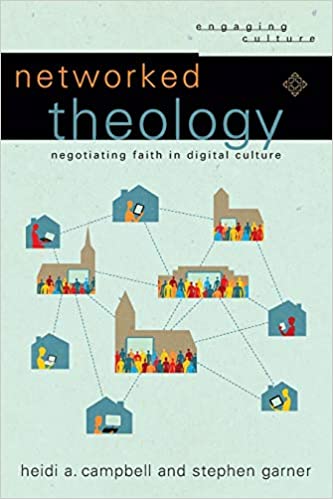
Networked Theology
by Heidi Campbell and Stephen Garner
This informed theology of communication and media analyzes how we consume new media and technologies and discusses the impact on our social and religious lives. Combining expertise in religion online, theology, and technology, the authors synthesize scholarly work on religion and the internet for a nonspecialist audience. They show that both media studies and theology offer important resources for helping Christians engage in a thoughtful and faith-based critical evaluation of the effect of new media technologies on society, our lives, and the church.
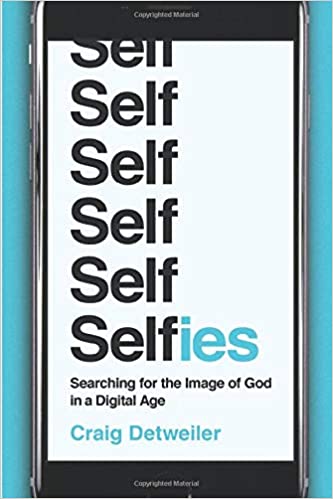
Selfies: Searching for the Image of God in a Digital Age
by Craig Detweiler
Selfies are ubiquitous. They can be silly or serious, casual or curated. Within moments, smart phone users can capture their image and post it across multiple social media platforms to a global audience. But do we truly understand the power of image in our image-saturated age? How can we seek God and care for each other in digital spaces?

Technopoly: The Surrender of Culture to Technology
by Neil Postman
In this witty, often terrifying work of cultural criticism, the author of Amusing Ourselves to Death chronicles our transformation into a Technopoly: a society that no longer merely uses technology as a support system but instead is shaped by it—with radical consequences for the meanings of politics, art, education, intelligence, and truth.
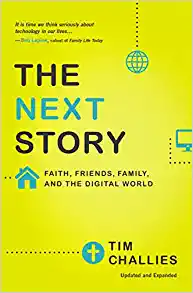
The Next Story: Faith, Friends, Family, and the Digital World
by Tim Challies
Even the least technical among us are being pressed from all sides by advances in digital technology. We rely upon computers, cell phones, and the Internet for communication, commerce, and entertainment. Yet even though we live in this “instant message” culture, many of us feel disconnected, and we question if all this technology is really good for our souls.
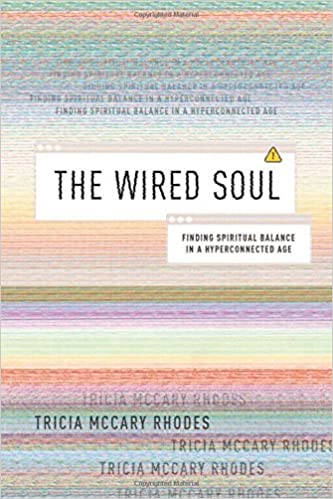
The Wired Soul: Finding Spiritual Balance in a Hyperconnected Age
by Tricia McCary Rhodes
If you had time to slow down, you’d notice: You’re more easily distracted lately. You forget the details of your life more often than you used to. You get easily agitated and have trouble resting, even though you’re more tired than you remember ever being. Even your spiritual life is not immune: You struggle to pray, to read the Scriptures, to be still and know that God is God.
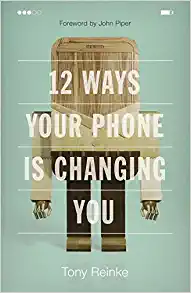
12 Ways Your Phone is Changing You
by Tony Reinke
Drawing from the insights of numerous thinkers, published studies, and his own research, writer Tony Reinke identifies twelve potent ways our smartphones have changed us—for good and bad. Reinke calls us to cultivate wise thinking and healthy habits in the digital age, encouraging us to maximize the many blessings, to avoid the various pitfalls, and to wisely wield the most powerful gadget of human connection ever unleashed.

